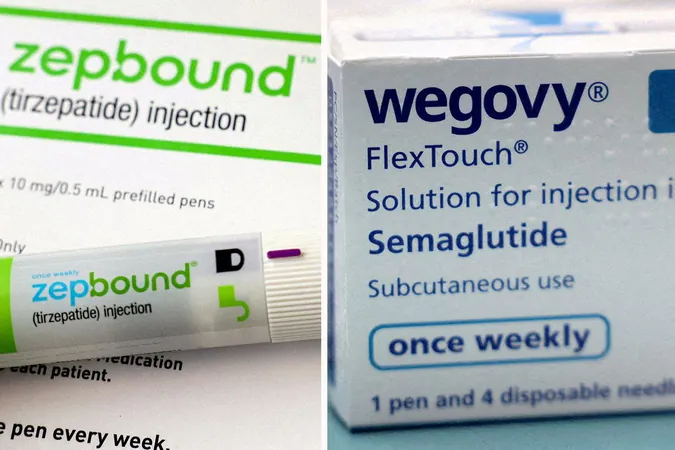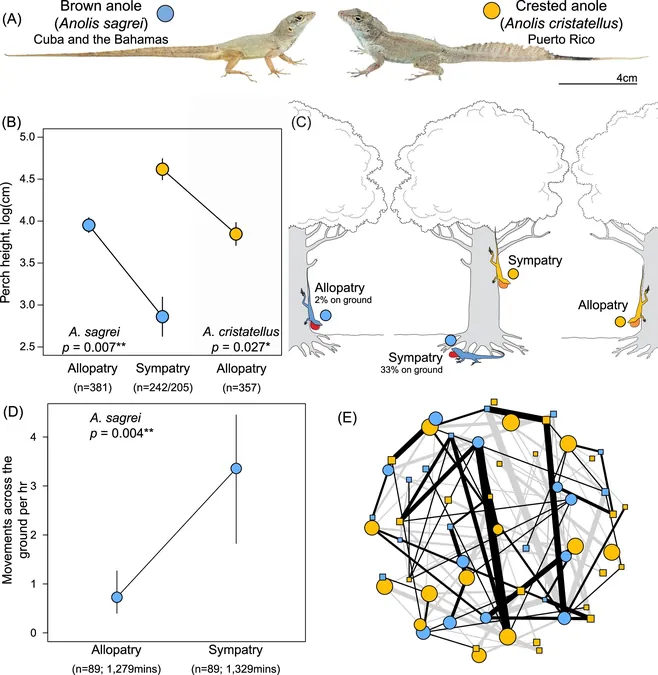
Revolutionizing Obesity Treatment: World Health Organization Highlights Potential of New Weight Loss Drugs Amid Risks
2024-12-18
Author: John Tan
WHO’s Announcement on New Weight Loss Drugs
LONDON - The World Health Organization (WHO) announced this week that a new class of weight loss medications developed by pharmaceutical giants Novo Nordisk and Eli Lilly could significantly impact the ongoing obesity pandemic. These drugs, known as GLP-1 receptor agonists, may represent a game-changing opportunity for addressing obesity alongside traditional health interventions, experts from the WHO stated.
Cautions from WHO Regarding Risks
However, the WHO voiced caution regarding the potential risks associated with these medications, emphasizing the need for health systems to prepare adequately. If not managed properly, there is a fear that the introduction of these drugs could divert attention from comprehensive strategies required to tackle the obesity crisis, ultimately leaving vulnerable populations even further behind.
Op-Ed by WHO Experts
In a powerful opinion piece featured in the Journal of the American Medical Association (JAMA), WHO's chief scientist Jeremy Farrar, nutrition director Francesco Branca, and senior advisor Francesca Celleti noted that while these new drugs “have the potential to be transformative,” relying solely on medication will not be sufficient to combat obesity. They stressed the importance of viewing obesity as a chronic disease and called on healthcare providers, governments, the pharmaceutical industry, and the public to innovate in prevention and treatment efforts.
Urgency of Effective Intervention
With over a billion individuals worldwide classified as obese and approximately 5 million obesity-related deaths reported in 2019, the need for effective intervention is urgent. Experts highlight that traditional policies promoting healthy diets and physical activity have not adequately solved the obesity problem, indicating a shift in approach is essential.
Combining Medical and Preventive Approaches
Combining GLP-1 receptor agonists with existing preventive measures could lead to significant improvements, the WHO suggested. However, the agency also raised flags over how these treatments—marketed under the names Wegovy, Mounjaro, and Zepbound—are being implemented. They pointed out that current models of intervention often target only those with severe obesity or related health issues. Instead, a broader perspective recognizing obesity as a chronic condition is crucial for effective management.
Need for Global Access
Moreover, WHO officials noted the need for equitable, affordable access to these medications on a global scale, especially considering low to middle-income countries facing rising obesity rates. The organization is set to release guidelines for the use of GLP-1 drugs in adults, including strategies tailored to these nations, anticipated by July 2025.
WHO’s 2023 Decision and Future Consideration
In a pivotal decision made in 2023, the WHO opted not to include GLP-1 drugs in its essential medicines list, intended as a reference for necessary medications available in all effective health systems. However, another application is currently under consideration for these drugs to be evaluated for the 2025 list update, demonstrating ongoing discussions about their role in global health.
Conclusion: A Holistic Approach Required
As the world faces an escalating obesity crisis, it’s clear that innovative solutions combined with a holistic approach will be vital in making meaningful progress against this pressing public health issue. The intersection of advancements in medical treatments and comprehensive health strategies may illuminate a pathway towards a healthier future.





 Brasil (PT)
Brasil (PT)
 Canada (EN)
Canada (EN)
 Chile (ES)
Chile (ES)
 España (ES)
España (ES)
 France (FR)
France (FR)
 Hong Kong (EN)
Hong Kong (EN)
 Italia (IT)
Italia (IT)
 日本 (JA)
日本 (JA)
 Magyarország (HU)
Magyarország (HU)
 Norge (NO)
Norge (NO)
 Polska (PL)
Polska (PL)
 Schweiz (DE)
Schweiz (DE)
 Singapore (EN)
Singapore (EN)
 Sverige (SV)
Sverige (SV)
 Suomi (FI)
Suomi (FI)
 Türkiye (TR)
Türkiye (TR)